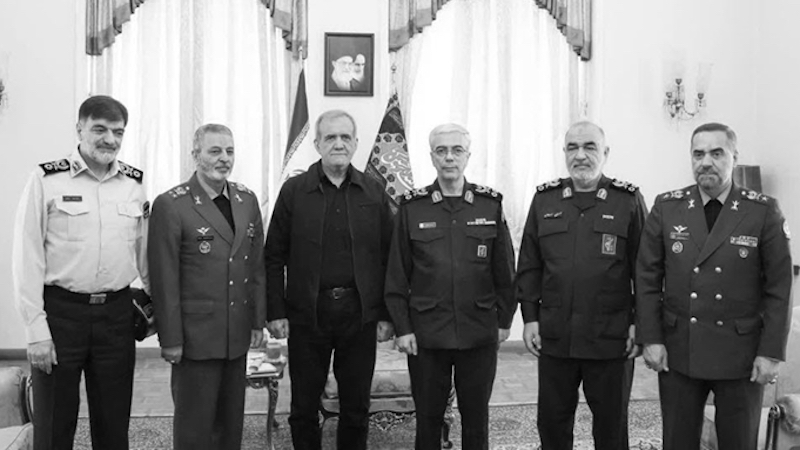Iran: The Truth About The Regime’s New President – OpEd

The day after the announcement of the results of Iran’s sham presidential election, Iranian regime supreme leader Ali Khamenei summoned the remaining members of the government of former regime president Ebrahim Raisi, who died in a helicopter crash on May 19. In his remarks to them—indirectly addressing new regime president Massoud Pezeshkian—he warned him and reminded him of the “model” of the president in the regime.
The supreme leader repeatedly mentioned Raisi and said, “He is truly a model; we must all learn from him.” He then reiterated the concept of “heartfelt belief and practical commitment” to the regime, which Pezeshkian, like all the election candidates, had committed to. Khamenei stated, “Dear Raisi demonstrated as a model that one can possess these mental, heartfelt, and practical qualities as the president of a country and follow them in practice.”
Of course, before the sham election, Pezeshkian repeatedly stated that he would continue Raisi’s path. A review of his positions and statements clarifies this issue:
During his election activities at the university, Pezeshkian responded to students who booed him for flattering Khamenei, saying, “I accept the leadership; I am completely devoted to him… You have no right to insult someone I believe in. You have no right to disrespect someone I believe in” (Source: Asr Iran Telegram channel, June 16, 2024).
Previously, he had also stated that those who insult Khomeini should be dealt with seriously (Source: ISNA news agency, December 15, 2009).
In a televised campaign program, in response to the host who asked, “Do you have any red lines in choosing your colleagues in the government?” Pezeshkian said, “The red line is very clear; anyone who does not align with the general policies of the Supreme Leader and does not want to implement those policies is a red line” (Source: State TV, June 20).
During the second debate, he said, “I accept anyone who comes to my campaign because I want to get votes. But what I will implement are Khamenei’s policies, and I will act on them. This is my red line.”
In a televised campaign program, emphasizing his commitment to Raisi’s path and program, Pezeshkian said, “The government has definitely had a program in the past… We will go and implement that program. It is not my job to say anything new… The duty of any incoming government is not to change the track. It is not to change the path. It is to continue the previously designed path.”
In another televised campaign program, he emphasized, “It is not intended for everyone to bring their own program. If we accept the program that Raisi’s government has written, then what is the point of writing another program? If you want to implement that program, then what are you saying?!” (Source: State TV, June 25).
In a campaign program, Pezeshkian vehemently denied his rivals’ claims that he had ever opposed Former IRGC Quds Force commander Qasem Soleimani. He went on to describe Soleimani as “a model that young people should follow” (Source: Iran Press news website, July 2).
In an interview broadcast on state television 10 years ago (November 27, 2014), he proudly recounted his history of being involved in repression, admitting that he was even ahead of the official repressive institutions in following Ruhollah Khomeini’s line of suppression and crime. He claimed to have been the leader of the so-called “cultural revolution” in Tabriz University and was the pioneer in closing the university. He also admitted that in the early days following the 1979 revolution and the regime imposed the mandatory hijab, in collaboration with the thugs of that time, they issued a directive that female medical staff should be fully veiled in hospitals and medical centers, and they implemented it.
Of course, Khamenei is aware of Pezeshkian’s history and background, and it is likely with this knowledge that he allowed him into his election circus. However, Khamenei’s remarks during his meeting with members of Raisi’s government indicate his concern about the effects of Raisi’s downfall and the potential weakening of his own rule, which had been reinforced by the executioner of 1988. Therefore, by modeling Raisi, he reminds Pezeshkian that as “president,” he must follow Raisi’s “mental, heartfelt, and practical” qualities “in practice.”
